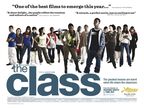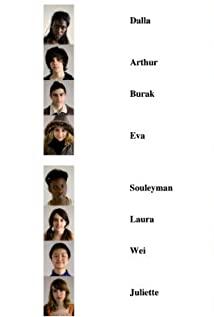The teachers carefully assessed the students' conduct grades at the final meeting, but the two student representatives ate and chirped in private. They couldn't help laughing and ran out of the meeting room. In the film, Estan seems more deserving of punishment than Suleman, a black student. Contrastingly dramatic images effectively reveal the gap between the persuasive teacher and the naive but self-righteous student, which in turn spans the embarrassment between parent and child, the purpose of French education and individual freedom. Is it the bitter fruit of the fathers, teachers and French social education, the creator and nurturer of all things? Maybe God can only sigh: O man, I created you, but you turned your back on me; I gave you free will, but you used it against me. God has tolerated people's innocence, the use of free will, the system, the norms and the provocation of God, but he will never forgive those evil deeds against the people. Of course, the film carefully handles the delicate relationship between them, and does not simplify their opposition. Expose the problem in the educational purpose and system and show it. Parents, teachers and even the French educational community have a clear understanding, and even rise to the insight into the predicament of human nature. Obviously, teacher François's harsh evaluation of the students without respect, and even the insulting scolding of the class representatives in the classroom stemmed from the "free" behavior of the students in his class at the final meeting, and the relationship between the educator and the educated. The balance between the two is broken by free will and emotional impulses, and it becomes an unavoidable problem, although the film finally reaches an agreement between the opposites, the cracks are smoothed, and the joy of football is shared.
View more about
The Class reviews









